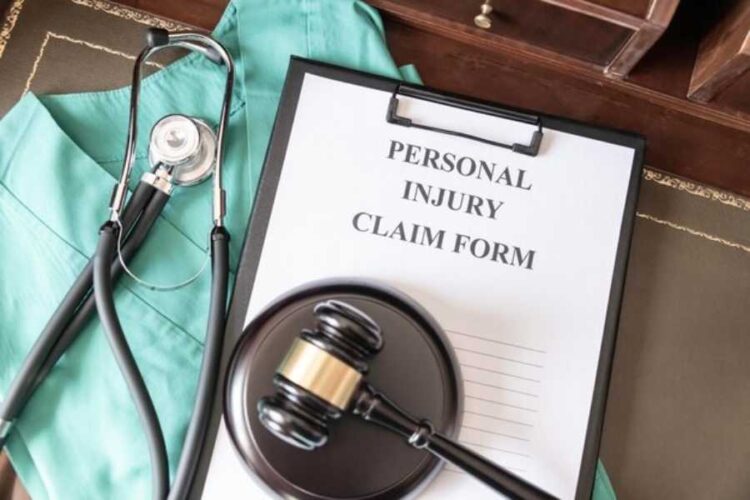If you’ve been injured in an accident due to someone else’s negligence, securing the right personal injury lawyer is critical. Not only can a skilled attorney help you navigate the complexities of legal proceedings, but they can also maximize the compensation you receive for your injuries. With so many options available, finding the best lawyer for your case might feel overwhelming. To help you make an informed decision, here are some top tips for selecting the ideal personal injury lawyer.
Understand Your Needs
Before you begin your search, take time to understand your case and what you need from a lawyer. Personal injury cases can vary significantly—from car accidents and workplace injuries to medical malpractice and product liability. Some lawyers specialize in specific areas, so knowing your case type will help narrow your options.
Additionally, consider the level of involvement you want in your case. Do you prefer a lawyer who takes full control of the process, or do you want someone who will collaborate closely with you? Clarifying these preferences can guide your decision.
Seek Referrals and Recommendations
Start your search by asking for recommendations from friends, family, or colleagues who have gone through similar situations. Personal referrals often provide valuable insights into a lawyer’s competence, communication style, and success rate.
If you don’t know anyone who can recommend a lawyer, consider seeking advice from professionals you trust, such as your doctor or another attorney. They may have connections to reputable personal injury lawyers.
Research Online
The internet is a powerful tool for finding and evaluating lawyers. Start by searching for personal injury attorneys in your area and visit their websites. Look for information about their experience, areas of expertise, and notable case results.
Online reviews and testimonials can also provide helpful insights. Websites like Avvo, Martindale-Hubbell, and Google Reviews allow clients to rate and review attorneys. While reviews shouldn’t be the sole factor in your decision, they can help you identify patterns of positive or negative feedback.
Verify Credentials
It’s crucial to ensure that the lawyer you choose is qualified and licensed to practice law in your state. Check their credentials with your state bar association, which maintains records of licensed attorneys and any disciplinary actions taken against them.
Additionally, consider whether the lawyer is a member of professional organizations, such as the American Association for Justice or your state’s trial lawyer association. Membership in these organizations often indicates a commitment to ongoing education and ethical practices.
Assess Experience and Expertise
Experience matters in personal injury law. Look for a lawyer with a proven track record of handling cases similar to yours. For example, if you’ve been injured in a car accident, find an attorney who has successfully represented clients in car accident cases.
Ask potential lawyers about their experience with your specific type of case, including:
- The number of cases they’ve handled.
- Their success rate.
- The types of settlements or verdicts they’ve achieved.
An experienced lawyer will have the knowledge and skills to build a strong case, negotiate with insurance companies, and advocate for you in court if necessary.
Schedule Consultations
Most personal injury lawyers offer free initial consultations, providing an opportunity to meet them and discuss your case. Use this time to evaluate their communication style, professionalism, and compatibility with your needs.
During the consultation, ask questions such as:
- How do you approach personal injury cases?
- What is your fee structure?
- What challenges do you foresee in my case?
- Who will handle my case—you or another team member?
Pay attention to how the lawyer listens to your concerns and answers your questions. A good lawyer will make you feel heard and provide clear, honest information.
Evaluate Communication Skills
Effective communication is essential in any attorney-client relationship. Choose a lawyer who is responsive and keeps you informed about your case’s progress. During your initial interactions, consider how quickly they respond to emails or calls and whether they explain legal concepts in a way you can understand.
A lawyer who communicates well will ensure you’re always aware of your case’s status and any important developments. This transparency builds trust and confidence in their ability to represent you effectively.
Understand the Fee Structure
Most private injury legal counselors work on a possibility charge premise, meaning they possibly get compensated in the event that you win your case.Typically, the fee is a percentage of your settlement or award, ranging from 25% to 40%.
Before signing any agreement, make sure you fully understand the fee structure. Ask about:
- The percentage they charge.
- Extra expenses, for example, court charges or master observer costs.
- Whether these costs will be deducted from your settlement or require upfront payment.
A reputable lawyer will provide a clear and detailed explanation of their fees, ensuring there are no surprises later.
Check Resources and Support
Personal injury cases often require extensive resources, such as expert witnesses, accident reconstruction specialists, and medical consultants. Ensure the lawyer you choose has access to these resources and the financial means to invest in your case.
Additionally, consider the size of the lawyer’s firm. While larger firms may have more resources, smaller firms often provide personalized attention. Decide which environment feels more comfortable for you.
Consider Their Negotiation and Trial Skills
Many personal injury cases are settled out of court, but some may require litigation. Your lawyer should be an experienced negotiator who can secure a fair settlement. However, they should also be prepared to take your case to trial if necessary.
Ask potential lawyers about their trial experience and success rate in court. A lawyer with strong trial skills will have the confidence and ability to advocate for you effectively in front of a judge or jury.
Trust Your Instincts
Finally, trust your gut when choosing a lawyer. Beyond qualifications and experience, you need someone who makes you feel comfortable and confident. If something feels off during your initial interactions, consider exploring other options.
A positive attorney-client relationship is built on trust, respect, and open communication. If you feel at ease with a lawyer, it’s a good sign that they’re the right fit for your case.
What to Do If You Have a Financial Dispute
If your legal or financial concerns extend beyond personal injury cases, such as issues with refund claims against financial institutions like Black Horse, it’s essential to take structured steps. For instance:
- Understand the Issue: Whether it’s a mis-sold product, overcharged fees, or a breach of agreement, clarify the nature of your dispute.
- Review Your Agreement: Go over the terms to confirm your rights to a refund or complaint resolution.
- Contact Customer Service: Reach out to the company’s customer service team to explain your concerns.
- Escalate the Issue: If unresolved, file a formal complaint and consider escalating to the Financial Ombudsman Service.
These steps help ensure fair treatment in any financial or legal scenario you encounter.
Conclusion
Finding the best lawyer for your personal injury case can make a significant difference in the outcome of your claim. By understanding your needs, researching thoroughly, and evaluating potential lawyers based on their experience, communication skills, and resources, you can make an informed decision.
Remember that your lawyer will be your advocate throughout the legal process. Take the time to choose someone who is not only qualified but also genuinely committed to fighting for your rights and securing the compensation you deserve. Additionally, if you’re dealing with a financial issue, such as a PCP refund or other refund disputes, ensure you take the necessary steps to protect your interests and resolve the matter effectively.










